An update on our journey to organic Vietnamese Coffee!

Updated 7/31/2024 - BIG NEWS! We are excited to announce that our farm completed their audit and received their USDA Organic certificate. This is a HUGE milestone for our partners and removes the biggest hurdle for Copper Cow Coffee to bring premium USDA Organic certified coffee to the US. We are so grateful to our partners for the hard work they put into passing their audit.
For next steps, our manufacturing facility is on the cusp of its audit which will allow us to actually prepare our finished goods for market! We'll keep you updated as we move along and look forward to officially adding that beautiful USDA Organic seal to our packaging. Until then, thanks so much for your support of our organic journey!
Want to dive in a little more? Keep on reading below to learn more about what the process looks like on our end.
What Does It Take To Go Organic?
From the outside, organic certification sounds pretty straightforward, right? Grow some Vietnamese coffee using certain standards, fill out some forms, get an inspection, done. BUT (and this is a big but), there is a pretty big difference between simply claiming a product is organic and actually meeting the certification requirements to be able to qualify for the USDA Organic Seal.
((Hot pause for a bit of background, here))
All products marked with the USDA Organic seal must meet standards that are governed by the US Department of Agriculture’s National Organic Program. However, the rules set by this department have recently become much more stringent over the past year (which is really a good thing!) as they govern the agricultural practices and supply chain requirements for a product to truly be labeled as Organic. TLDR; it is their duty to preserve the integrity of organic products on shelf and ensure brands are meeting their specific standards.
((Now back to our regularly scheduled programming))


So for Copper Cow Coffee’s supply chain, it means we have a few hurdles to work through:
1) Certification of Crop to Green Beans: This means having a certification at the farm level. The certification process here involves soil testing, product testing, and much, much more. It typically takes a very LONG time (like, 3-7 years) for a farm to officially become certified. This is because past pesticide and herbicide residues take several growing seasons to dissipate from the soil…which is just another reason why we are so passionate about converting our farms!
Another big factor - the processing of the coffee cherries into green beans must be done in a way that ensures crop from organic certified plots DO NOT cross contaminate with uncertified plots. Copper Cow Coffee has worked closely with its farms to build confidence to invest in these efforts.
2) Certification of the roast and manufacturing facility: The facility that roasts, processes, and grinds our coffee beans also needs to get USDA organic certified. This ensures proper handling and segregation of the organic product into tamper-evident and retail finished goods. AKA absolutely no potential for cross contamination.
3) Certification of Import / Cross-border handling - Remember those new rules we mentioned earlier? They’re called the Strengthening Organic Enforcement Rules, and they now require cross border “handshakes” between organic certified entities as handlers of these organic goods. This strengthens the handoffs between cross-border transactions and reduces the risk that goods may be spoiled when crossing the border.
USDA-certified Organic is not the end all sustainability certification. But it does show a specific level of detail about what product is (and isn’t) in the pursuit of improved agricultural sustainability.
Stay tuned as we can wait to share more of journey with you (our community!) over the next several months! In the meantime, check out the glow-up our farms have had to date!

